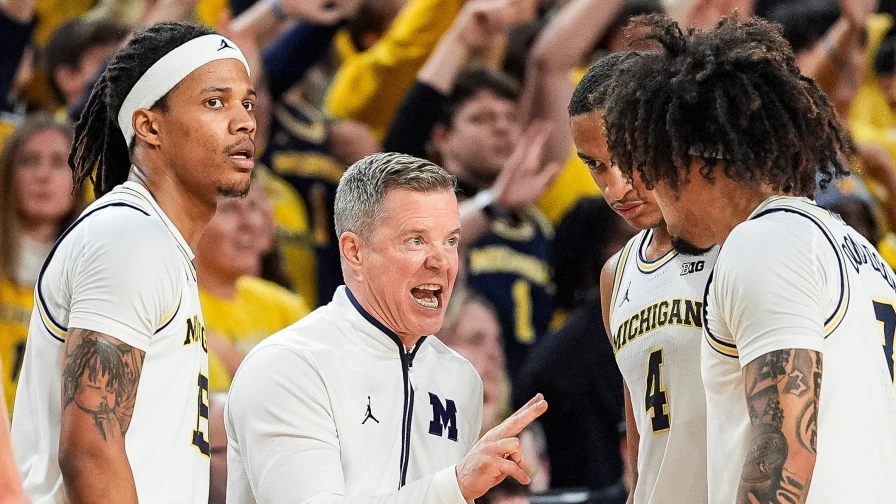Loss to Auburn Was a March Madness Lesson for Vanderbilt Basketball, Mark Byington
The path to March Madness is never easy. For teams like Vanderbilt basketball, the road is often full of twists, turns, and hard lessons. One such lesson came in the form of a tough loss to Auburn during a pivotal SEC matchup in the 2025 season. While the defeat stung, it provided valuable insights into what the Commodores need to improve upon if they are to make a deep run in March. Head coach Mark Byington, who has spent years honing his craft and leading his team through challenges, found himself reflecting deeply on what went wrong in the loss, but also what Vanderbilt can learn from it moving forward.
In many ways, this loss to Auburn encapsulated the highs and lows of a season filled with promise but littered with moments of inconsistency. But it was more than just a defeat—it was a teachable moment, one that Byington could use as a reference point for future success.
The Context: Vanderbilt’s Season and Expectations
Vanderbilt’s basketball program, like many teams in the SEC, has long lived in the shadow of more established powerhouses like Kentucky, Tennessee, and Auburn. However, under head coach Jerry Stackhouse, and now under Byington’s leadership, the Commodores have slowly built a foundation that has allowed them to challenge for higher spots in the SEC standings. Byington, in particular, has worked tirelessly to establish a program that is known for its grit, attention to detail, and tough defense.
Entering the 2025 season, the Commodores had hopes of competing for an NCAA Tournament berth. While they were not necessarily considered favorites in the SEC, they had a group of talented players who had shown flashes of brilliance in the previous season. This season, they hoped to capitalize on the growing chemistry between their key players and take the next step toward postseason glory.
One of the most pressing questions for Vanderbilt heading into the season was whether they could consistently compete against the top-tier teams in the SEC. Beating teams like Auburn—who have historically been among the best in the conference—would be a significant barometer of their growth and ability to compete at the highest level.
Auburn, under the guidance of head coach Bruce Pearl, had developed a reputation as one of the best teams in the SEC and one that regularly made noise on the national stage. So, when Vanderbilt faced off against the Tigers, it was more than just another conference game. It was a chance for the Commodores to prove they were ready for the big time.
The Auburn Game: What Went Wrong
From the very beginning of the game, it was clear that Auburn’s fast-paced, high-intensity style of play would be a challenge for Vanderbilt. The Tigers, known for their up-tempo offense and pressure defense, overwhelmed the Commodores early on. Jabari Smith, Auburn’s standout forward, was a matchup nightmare for Vanderbilt’s defense. His combination of size, skill, and athleticism gave him the ability to dominate both inside and outside the arc. The Commodores struggled to contain him, which led to significant gaps in their defensive coverage and allowed Auburn to build an early lead.
Vanderbilt had moments where they fought back. They displayed flashes of brilliance with timely shooting from Liam Robbins and aggressive drives to the basket by Jordan Wright. However, the Commodores were often inconsistent in their execution. There were too many turnovers, missed shots in crucial moments, and lapses in defensive communication. Auburn capitalized on these mistakes, and by halftime, the Tigers had built a comfortable lead that Vanderbilt struggled to recover from.
While Vanderbilt’s defense had been a strength for much of the season, the Tigers exposed certain weaknesses that the Commodores could not overcome. Auburn’s ability to create mismatches on offense, coupled with their aggressive full-court press, forced Vanderbilt to play at a faster pace than they were comfortable with. This frenetic style of play ultimately worked in Auburn’s favor, as the Commodores were not able to establish any rhythm on offense.
One of the biggest takeaways from the game was Vanderbilt’s inability to adjust to Auburn’s pace. Coach Byington’s system relies heavily on discipline, structure, and slowing down the game when needed. Auburn’s tempo, however, forced the Commodores into a more chaotic style of play, and they were unable to execute their offense effectively.
Byington’s Response: A Learning Experience
While the loss to Auburn was disappointing, Mark Byington saw the game as an invaluable learning experience for his team. Byington, who had previously coached at Georgia Southern before taking over at Vanderbilt, is no stranger to adversity. He is known for his ability to adjust his strategies and inspire his players to push through difficult situations. In the aftermath of the Auburn loss, Byington took a calm and reflective approach, focusing on the lessons that could be learned from the defeat.
1. Adjusting to Opponent’s Style
One of the primary lessons that Byington emphasized was the need for his team to better adjust to different styles of play. Against Auburn, the Commodores were caught off guard by the Tigers’ aggressive full-court press and fast-paced offense. While Byington’s system is predicated on controlled offense and strong defense, his players needed to become more versatile in their approach. In March Madness, teams face all types of challenges, and the ability to adapt to different styles of play could be the difference between success and early elimination.
Byington stressed that his players needed to improve their decision-making under pressure. Turnovers against a team like Auburn are costly, and the ability to execute in fast-paced situations could be critical in tournament play. Byington emphasized the importance of staying calm, trusting in their training, and making smarter decisions when the game sped up.
2. Defensive Adjustments
Vanderbilt’s defense had been one of the team’s strongest attributes up to that point in the season, but against Auburn, it was exposed in several areas. One of the major takeaways was how the Commodores allowed Auburn to take control of the game through mismatches on defense. With players like Smith and K.D. Johnson capable of scoring from all areas of the floor, the Commodores struggled to limit their effectiveness.
Byington worked with his team on defensive rotations, ensuring that they were in better positions to help each other and cover shooters. Against a high-powered offense like Auburn’s, Vanderbilt’s defense would need to be more fluid and less predictable. Byington also emphasized the importance of keeping a defensive mindset even when things weren’t going their way on offense.
3. Building Depth and Rotations
Depth is always a critical factor in March Madness, where teams play multiple games in a short span of time. Against Auburn, Vanderbilt showed signs of fatigue as the game wore on. Byington recognized that he needed to further develop his bench to ensure his team would be fresh and capable of competing for the full 40 minutes in crucial matchups. Rotations would need to be deeper, and the Commodores needed to trust their bench players more when facing high-pressure situations.
Byington has always valued the development of his roster, and this loss to Auburn reinforced the importance of a balanced and well-rested team in March Madness. Ensuring that players like Tyrin Lawrence and Akeem Odusipe had the confidence and opportunities to contribute during key moments would be critical to achieving postseason success.
4. Mental Toughness and Resilience
Perhaps the most important lesson Byington imparted after the Auburn loss was the need for mental toughness. In the heat of competition, when things aren’t going your way, it’s easy to let frustration take over. Byington made it clear that his team needed to stay focused on the long-term goal: March Madness. A loss in February didn’t define their season; it was the lessons they learned from adversity that would shape their future.
Byington pointed out that every loss in the SEC season was an opportunity to learn and grow, and the key to success in March Madness would be the ability to bounce back quickly from setbacks. Building resilience, learning from mistakes, and staying committed to the team’s goals would be the foundation for a successful postseason.
Looking Ahead: The Road to March Madness
The loss to Auburn, though difficult, served as a critical stepping stone for Vanderbilt as they look ahead to March Madness. With the lessons learned from the game, Mark Byington and the Commodores now have a clear roadmap for improvement. The key is to continue developing their game, adjust to different styles of play, and become a more versatile team.
As March approaches, Vanderbilt’s chances of making a deep run in the NCAA Tournament will depend on how well they apply the lessons from this Auburn loss. If Byington can harness the lessons learned and instill the right mindset in his players, the Commodores could surprise many in March Madness and continue their growth as a program to be reckoned with in the SEC.



